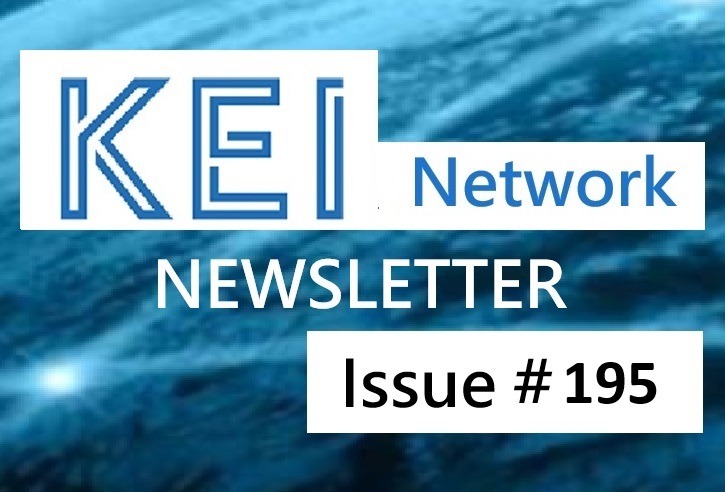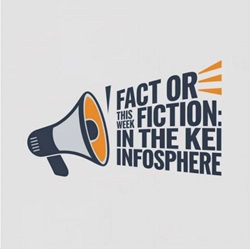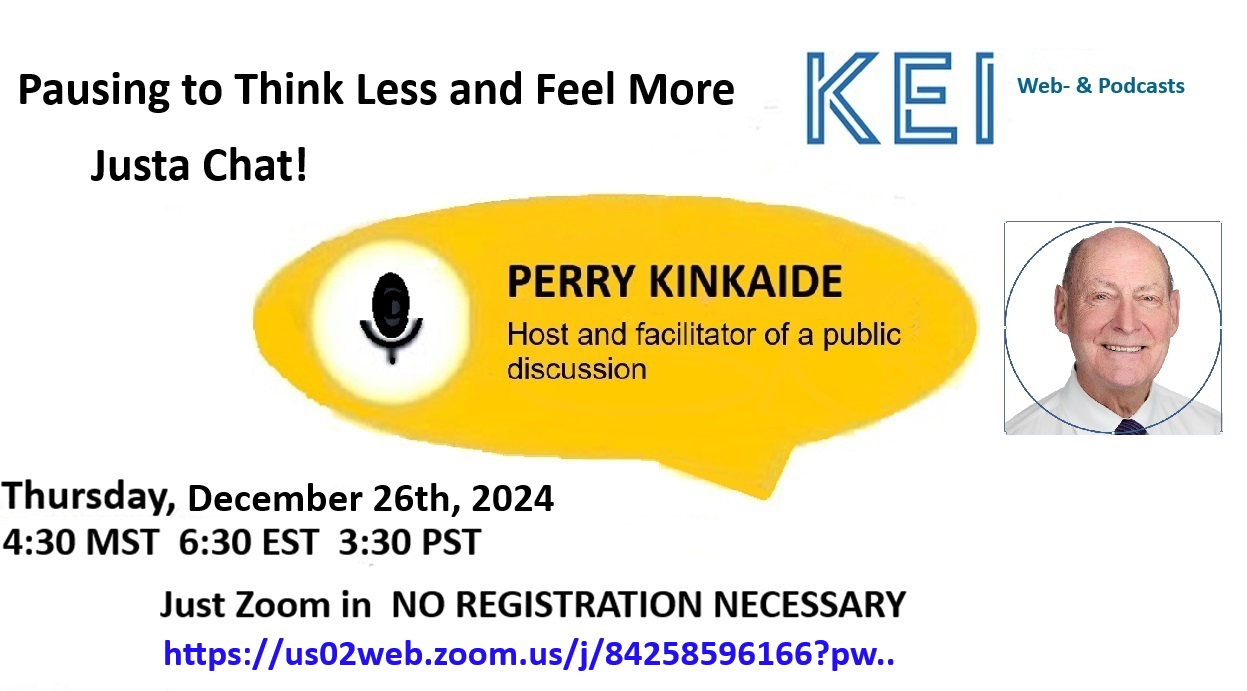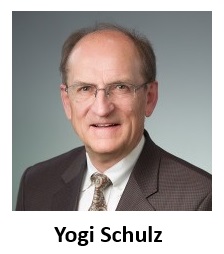Pausing to Think Less and Feel More I'm feeling more and thinking less of late. Perhaps it's that Christmas is but days away. Maybe it's the recent fluff of an evening snowfall. Could even be the messages drifting south from Santa and north from Donald. I suspect my reunion this year with classmates of the past has had an impact too. But ... I'm wanting to pause this day and share with you what I'm feeling and muse about what could or should be.
The fear of change is natural, but we do adapt. We do learn. We have made it this far not just because we are resilient, not just because of our experience, learning and knowledge, or of our social and public supports, but because we have faith. Let me explain.
When I visited the Czech Republic in 1969, the USSR had restored it's hold on the country. Tyranny had returned. It was fearful. Colourless. Dark. You could almost taste it. While exploring Prague, walking about the Castle, Charles Bridge, Wenceslas Square, friends would warn me where and when it was safe to speak.
It was depressing to meet people of my age, young people who in the west embraced the future, but here they openly expressed that "Tomorrow will always be worse than today!" I was saddened, as I'd never heard such an expression. I left, never to forget the oppression. It was written about in "Darkness At Noon" by Arthur Koestler. But you had to feel it, live it - even if briefly, to believe it.
My wife who I met several years after my visit, is Czech. She escaped to Denmark and ultimately the US and was reunited in Canada to where her parents had escaped. It took a while; I watched as their doubts in the future faded, their faith in the future restored.
My faith was shaken recently. I had mused a few weeks ago that "Manners Matter". My musing was a subtle forecast that manners - good manners, would be a significant determinant of who would win the US election. To my surprise, potty mouth, disruptive, nasty, aggressive - bad manners enhanced the leader's appeal to bring about change - to quell the global chaos. Why?
Today, with social media and 24 x 7 media coverage, the politics of winning and exercizing power is increasingly transparent to the public. Being bad mannered not only gets public atttention, it conveys a toughness of character. A willingness and capacity to make change; to do what's necessary without regard for being good mannered or nice.
The art of the deal particularly in politics, is not about good manners or "playing nice". Politics is nasty, so can be change management. Leaders today worldwide with bad manners are appealing to majorities who they have heard want the global chaos resolved. We trust that the means employed to effect change do not get out of hand to justify results.
We - you and I, share a spirit of optimism, a spirit that guides the KEI Network as we explore change and dig deep into it's consequences. We do so freely and with faith that tomorrow will always be better than today.
To you and yours - Merry Christmas! - Editor@KEInetwork.net https://us02web.zoom.us/j/84258596166?pw.. When Winning Overshadows Ethics and Competence In the pursuit of results, Donald Trump’s pre-inauguall messaging continues to defy traditional norms, favoring raw power over conventional diplomacy and decorum. The pronoucements reflect a readiness to wield authority with little regard for ethical considerations, competence, or long-term consequences.
Consider the use of tariffs as a blunt tool in negotiations, such as threatening massive penalties to compel progress on unrelated issues like drug trafficking and immigration. The approach oversimplifies complex global dynamics and risks unintended economic fallout. Similarly, Trump’s remarks on trade, claiming that the U.S. is subsidizing Canada due to trade imbalances, reveal a fundamental misunderstanding of economic principles and trade agreement.
The issue extends to key appointments. Unqualified nominees for critical positions have been presented as disruptors of entrenched bureaucracies, yet their lack of expertise often hampers effective governance. Meanwhile, legal actions against media organizations for alleged defamation appear more as intimidation tactics than genuine grievances, undermining press freedom.
Adding fuel to an already polarized nation, Trump’s comments characterizing violent rioters as “patriots” raise profound concerns about the erosion of civic trust and the normalization of extremist behavior.
Critics argue that this relentless focus on “winning” comes at the expense of decorum and ethics. As Perry Kinkaide, a commentator on Canadian and American politics, observed, "Manners don’t matter anymore. Ethics is irrelevant. Power is the means, and only results count." This sentiment, though stark, underscores a broader shift in leadership priorities that has left allies and adversaries alike questioning America’s role on the global stage.
While some see the approach as a necessary recalibration in an era of political gridlock, others fear it erodes the foundational principles of democracy and diplomacy. The question remains: What is the true cost of results achieved at any cost?
|
|||||||||


 We in the
We in the 
